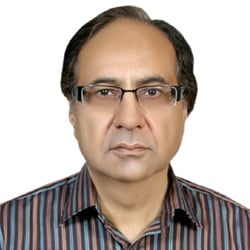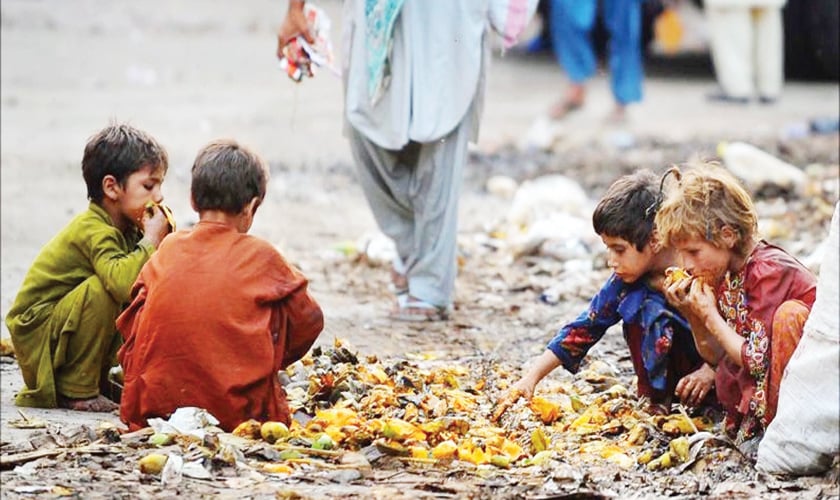INSIGHT
The size of the informal (black) economy is growing at a phenomenal rate that is causing serious problems for policy makers to increase taxes and help improve the GDP growth rate.
 Official and unofficial quarters say that over the years the size of informal economy, which is still understated, has grown to 60 percent of $280 billion Pakistan’s formal or documented economy. The situation, they maintain, warrants revise thinking to reach to the root cause of the problem that is the elimination of corporate tax evasion and bringing the informal small scale manufacturing into formal large scale manufacturing sector. The share of smuggling and drug trafficking in the informal economy is said to be close to 15 percent that comes to $40 billion of $280 billion economy.
Official and unofficial quarters say that over the years the size of informal economy, which is still understated, has grown to 60 percent of $280 billion Pakistan’s formal or documented economy. The situation, they maintain, warrants revise thinking to reach to the root cause of the problem that is the elimination of corporate tax evasion and bringing the informal small scale manufacturing into formal large scale manufacturing sector. The share of smuggling and drug trafficking in the informal economy is said to be close to 15 percent that comes to $40 billion of $280 billion economy.
Money earned or acquired through illegal means on informal activities is termed black money, meant to avoid tax payment and increase profit. It is a challenge for many developing countries like Pakistan where illegal business and tax evasion is a real problem for the governments.
Informal economy is thriving in self- employed businesses where the number of employees is shown less than 10 workers. The growth of the informal economy is also witnessed in agriculture sector, whole sale and retail business, construction, transport and communications, small scale manufacturing and other miscellaneous services. The manufacturing sector has so far shown little sign of recovery.
According to labor force survey of 2014-15, agriculture sector which has come down from 50 percent to 20 percent of the GDP over the years, is described as informal and, therefore, is out of the tax net. However, the sad part is that the tax evasion by the corporate sector through its unregistered companies doing business in the informal sector is incredibly high, the proof of which is that only 24,000 companies file their income tax returns out of total of 66,000 companies registered with the Security and Exchange Commission of Pakistan (SECP).
Since no corrective measures were taken by the successive governments, partly because of their vested interest, the size of the informal economy continues to surge due to which Federal Bureau of Revenue (FBR) is unable to collect required taxes to meet the government expenditures and the gap of which is now over Rs1 trillion.
And now when the informal economy is growing at a faster pace compared to formal economy, the Pakistan Muslim League (N) government is taxing middle and lower income groups by recovering 40 percent withholding tax beside recovering from them their usual income tax.
The withholding tax of 4 percent was introduced by the first PML (N) government back in 1990 on dividends, unearned income, bank deposits and interest incomes. Later it was stretched to national saving schemes, telephones and mobile phones. This withholding tax and sales tax on cell phones is today over 30 percent, hurting the common man.
The word has it that the government has been proposed to direct SECP to stop registration of companies which do not file their income tax returns which is only 8 percent compared to 27 in India where 6,40,000 companies file their tax returns.
“We have family owned companies whose most of the income comes from their informal business by avoiding tax with the connivance of the federal and provincial tax departments,” said an insider familiar with the issue. Tax on per capita income in Pakistan, he said, is 50 percent compared to 8 and 10 percent of India and Bangladesh, respectively.
The present government, currently confronting with Panama leaks scandal, it is said, can tackle the issue to some extent by reaching out to countries like Great Britain and United Arab Emirates (UAE) because of having Double Taxation Avoidance Agreements with them. Multinational companies are often accused of evading taxed through their transfer pricing. India has resolved this issue 10 year ago and why could not Pakistan do so far is very intriguing.
Those Pakistanis who had evaded tax and kept their money in these two countries could be forced to pay their taxes, though many of them have whitened their black money and the issue is well known to GB and UAE. This is in addition to much trumpeted $200 billion stashed by Pakistanis illegally and deposited in Swiss banks.
Finance Minister Ishaq Dar had said two years ago to bring $200 billion back in the country by raising the issue with the Swiss authorities. Regrettably it was perhaps a mere statement to seek political mileage as no follow up action was taken. Swiss authorities provide protection to private accounts in banks saying that privacy clauses of the banks do not allow them to reveal their details. Experts say that $200 billion is equal to one year’s Pakistan GDP, enough to pay off all the debts of the country and still have surplus money left.
This is said to be the first time in the last three years that the funds linked to Pakistan in Swiss banks have exceeded that of India. The government on August 2016 had introduced Benami Transactions (Prohibition) Bill in the parliament. The objective of which was to stop the spread of black money especially in the real estate sector. The move came after several partially successful attempts were made to encourage/force documentation of the economy which included the imposition of additional tax on non- filers and revision in real estate valuation table.

Nevertheless latest reports say that the National Assembly’s Standing Committee on Finance has accepted the recommendations of its sub-committee to offer an amnesty scheme to the real estate sector. The government is expected to accept the proposals of the Standing Committee despite the fact that it was opposed by the FBR officials. Since the government’s revenue has gone down tremendously and the collection of Rs75 billion from the real estate sector is fast becoming a mere dream, the recommendations of the committee were most likely to be accepted. The question is how would the government achieve the much needed documentation of the economy and collect desired taxes from all the potential tax payers, both individuals and companies?
Who does not know that there is collusion between the government’s institutions and those who are unprepared to pay their due taxes and had this been not the case, the successive governments would have certainly succeeded in raising tax-to-GDP ratio to at least 15 percent if not 20 percent as is seen in the developing countries including those of the region. The government claims this ratio is currently 11 percent that is often challenged by the independent economists.
Can any government increase domestic and external resources without correcting structural imbalances is also a serious question to be answered? When the tax-to-GDP ratio is low, investment and savings do not adequately improve, local and external debt is consistently increasing, exports are declining and imports are rising while reserves are accumulated through borrowing, there is hardly any hope to achieve any fiscal consolidation.
The government claim that it has largely restored macro-economic stability and that the country’s economy is poised for higher growth. But those who do not accept the government’s claim say that Pakistan’s economic problems are fundamentally and predominantly structural and not just cyclical for which macroeconomic stability might be necessary but not sufficient to deal with bigger economic challenges.
There is no doubt the PML (N) government took over when the PPP had left acute economic mess and the international multilateral agencies were unprepared to bailout the country. Navigating successfully three year $6.1 billion IMF’s extended Fund Facility (EFF) without any contraction in the GDP needs to be appreciated. This no doubt had saved the country from being default but then the fair argument is why foreign exchange reserves were increased mostly through external borrowing. We are time and again reminded by the officials of the ministry of finance and the central bank that seeking foreign loans was justified to remove pressure off the exchange rate and resultantly ensure better value of rupee against the dollar.
The central bank is happy to build reserves up to $22 billion to manage six weeks of imports but it cannot guarantee how would it cope with the rising debt which is bound to increase from current $73 billion to $90 billion in next two years and start creating serious repayment issues. So far home remittances have helped the economy afloat while low oil and international commodity prices played their major role to cut import bills during the last three years.
The government says it will further achieve 5 percent plus growth rate in 2016-17 and 6 percent in subsequent years. Has this increased GDP growth, which remained less than 3 percent during PPP’s tenure, has brought any tangible relief for the common man? Has poverty reduced and more jobs created is a question that speaks volumes about poor human development indicators. The fruits of improved GDP growth rate have yet to reach to the poorer sections of the society.
Market-based economies require frameworks that allocate resources effectively and result in capital formation and inclusive growth. Generating adequate tax and minimizing public sector losses demand a ‘political will’ to complete second generation reforms particularly relating to energy and revenue to seek increased new resource mobilization that so far remained unavailable.
Without significantly increasing tax-to-GDP ratio by finding out new sectors including that of agriculture, lowering reliance on domestic and foreign borrowing will remain a pipe dream. Governance reforms are another issue which can ensure sustained and thriving formal sector in Pakistan. But so far black economy is surging unabated and this will go on unless the collusion between the unscrupulous corporate sector and the government agencies is broken - a hard job to be done by the political governments because of being on the receiving end at the hands of the corrupt political and business elites.
The writer is Islamabad-based senior journalist